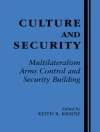he emergence of Brazil, Russia, India, China, and South Africa on a global stage has upset the dominance of the United States as the world’s only superpower. But can they chart a path toward a more just global economy? This collection, which brings together leading political economists from around the world, argues that the BRICS are actually amplifying some of the worst features of international capitalism.
This book aims to fill a gap in studies of the BRICS grouping of countries (Brazil, Russia, India, China and South Africa). It provides a critical analysis of their economies, societies and geopolitical strategies within the framework of a global capitalism that is increasingly predatory, unequal and ecologically self-destructive no more so than in the BRICS countries themselves.
In unprecedented detail and with great innovation, the contributors consider theoretical traditions in political economy as applied to the BRICS, including sub-imperialism, ” the World System perspective and dynamics of territorial expansion. Only such an approach can interpret the potential for a brics-from-below” uprising that appears likely to accompany the rise of the BRICS.
Contributors: Elmar Altvater, Baruti Amisi, Patrick Bond, Omar Bonilla, Einar Braathen, Pedro Henrique Campos, Ruslan Dzarasov, Virginia Fontes, Ana Garcia, Ho-fung Hung, Richard Kamidza, Karina Kato, Claudio Katz, Mathias Luce, Farai Maguwu, Judith Marshall, Gilmar Mascarenhas, Sam Moyo, Leo Panitch, Bobby Peek, Gonzalo Pozo, Vijay Prashad, Niall Reddy, William Robinson, Susanne Soederberg, Celina Sørbøe, Achin Vanaik, Immanuel Wallerstein and Paris Yeros.
Jadual kandungan
BRICS: An Anti-Capitalist Critique
Edited by Patrick Bond and Ana Garcia
Table of Contents
Version of 16 January 2015
· Ana Garcia and Patrick Bond: Introduction
Part 1: Sub-imperial, inter-imperial or capitalist-imperial?
· Patrick Bond: BRICS and the sub-imperial location
· Mathias Luce: Sub-imperialism, the highest stage of dependent capitalism
· Virginia Fontes: BRICS and capitalist-imperialism
· Leo Panitch: BRICS, the G20 and American Empire
· Claudio Katz: Mutations of upstream, intermediate and peripheral capitalism in the neoliberal era
Part 2: BRICS ‘develop’ Africa and Latin America
· Baruti Amisi, Patrick Bond, Richard Kamidza, Farai Maguwu and Bobby Peek: BRICS corporate snapshots during African extractivism
· Ana Garcia and Karina Kato: The story of the hunter or the hunted? Brazil’s role in Angola and Mozambique
· Omar Bonilla: Chinese oil geopolitics in the Andean region
· Pedro Henrique Campos: The transnationalization of Brazilian construction companies
· Judith Marshall: Behind the image of South-South solidarity at Brazil’s Vale
· Einar Braathen, Celina Sørbøe and Gilmar Mascarenhas: Rio’s ruinous mega-events
Part 3: BRICS within global capitalism
· William Robinson: BRICS within transnational capitalism
· Elmar Altvater: BRICS within fossil capitalism
· Sam Moyo and Paris Yeros: Scramble, resistance and a new non-alignment strategy
· Susanne Soederberg: The BRICS’ dangerous endorsement of ‘financial inclusion’
· Achin Vanaik: Future trajectories for BRICS?
· Immanuel Wallerstein: Whose interests are served by the BRICS?
· Patrick Bond: BRICS from above, from the middle and from below
· Ana Garcia: Building BRICS from below?
Mengenai Pengarang
Ana Garcia teaches history and international relations at the Federal Rural University of Rio de Janeiro and is an associate of the Institute of Alternative Policies in the Southern Cone of Latin America.
Patrick Bond, based in South Africa since 1990 mainly at the University of Kwa Zulu-Natal and Wits University, recently authored Elite Transition (third edition), South Africa: The Present as History (coauthored with John Saul) and Politics of Climate Justice.












